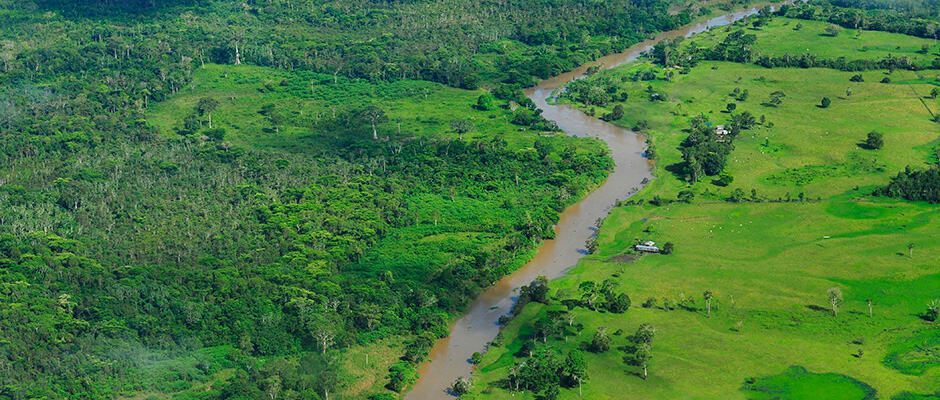Share this article
Successful Rainforest Protection Much Like Speed Control
Putting the brakes on deforestation works best when treated the same way police enforce speed limits on highways, according to research on Brazilian jungle: Give them a ticket.
“Forest law enforcement is, in principle, similar to speed limit control in traffic: the higher the penalties and the more frequent the controls, the greater the deterrence potential,” said Jan Börner in a release. Börner is the Robert Bosch junior professor at the Center for Development Research (ZEF) of the University of Bonn and a lead author of a recent study published in PLOS-ONE.
Börner and other researchers found that the roughly 4,600 square kilometers of Brazilian rainforest that’s currently cleared every year is around 80 percent lower than the same amount cleared in 2004 —around 28,000 square kilometers. “Over the last decade, there has been a significant decline in deforestation,” he said.
The researchers looked at different federal and state laws in Brazil, including fines and penalties instituted against cattle ranchers, farmers and others usually responsible for forest clearance, and how well they were actually implemented or executed. They found that states like Mato Gross and Para enforced effective anti-forest clearing laws.
“Public prosecutors in these states have dramatically increased the pressure. They maintain black lists of agricultural enterprises that violate the protective provisions,” Börner said, adding that wholesale dealers sometimes use these lists, no longer buying products from blacklisted sources.
Other factors that appeared to help included better collaborations between states and the federal government and a satellite-monitoring system that can now track deforestation nearly as it occurs.
People have also previously attributed the slowing rate of deforestation to economic reasons, among other things. But Börner hopes that his study shows effective law enforcement has a greater impact on stopping the tree-chopping, especially when combined with other strategies like rewarding farmers for leaving trees alone on their property.
He said that this information can also be used so that deforestation is slowed in vulnerable jungles in Asia and Africa.
“Brazil shows how you can contribute to the conservation of internationally important rainforests with investments in satellite systems and consistent prosecution of illegal deforestation.”
Header Image:
Aerial view of the Amazon Rainforest, near Manaus, the capital of the Brazilian state of Amazonas. A new study shows that the speed of deforestation has slowed drastically in Brazil in the past decade, likely due to improved laws and enforcement.
Image credit: Neil Palmer (CIAT) via flickr








